Doctors may start hating their patients due to compassion fatigue, feeling disrespected, systemic burnout, and moral distress. When this happens, they should reconnect with their purpose, set boundaries, focus on wins, build support systems, practice self-care, seek professional help, advocate for change, and remember the human connection.
On a lighter note, if dealing with chatty patients makes you want to hide in the supply closet, perhaps a career in radiology is more your speed. Because it’s a place where you can avoid patient interaction and spend your days reading x-rays in a dark room. 😅
Well, jokes aside. Let’s be honest.
Being a doctor is a noble profession, but it can also be incredibly demanding. Long hours, complex cases, and the emotional weight of caring for others can take a toll on your mental and physical well being.
According to a survey, physicians are almost twice as likely (40.2% to 23.2%) to be dissatisfied with their work-life balance than the average working American adult.
This might result in energy depletion, leading to a significant decrease in your ability to treat your patients or sometimes even worse – resulting in feelings of resentment and hatred towards the very people you swore to help.
Reasons why a doctor might start hating his patients
So, why do you think a physician might start feeling anger, annoyance, and bitterness towards their patients?
Here are some common culprits:
➜ Compassion fatigue
One of the primary factors why you might start feeling exhausted towards patients is the constant exposure to suffering. Being exposed to extreme or severe issues and traumas can leave you emotionally drained.
The National Library of Medicine reports that compassion fatigue among healthcare providers varies from 7.3% to 40%.
➜ Feeling disrespected
Dealing with demanding patients can be frustrating. This could be another major reason for physicians to feel resentment towards their patients. No one has the tolerance for being disrespected and continuously facing such behavior can make the doctors feel annoyed and hateful.
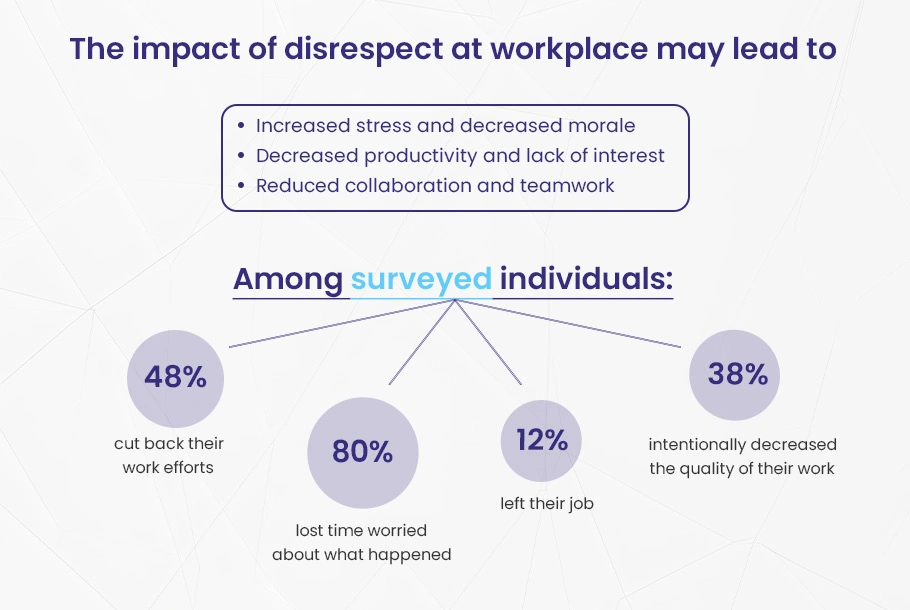
➜ Systemic burnout
Administrative tasks are adding too much a burden to a physician’s emotional, physical, and mental health. Tedious paperwork , long workweeks, and lack of control can leave you feeling burnt out and depleted on top of everything else.
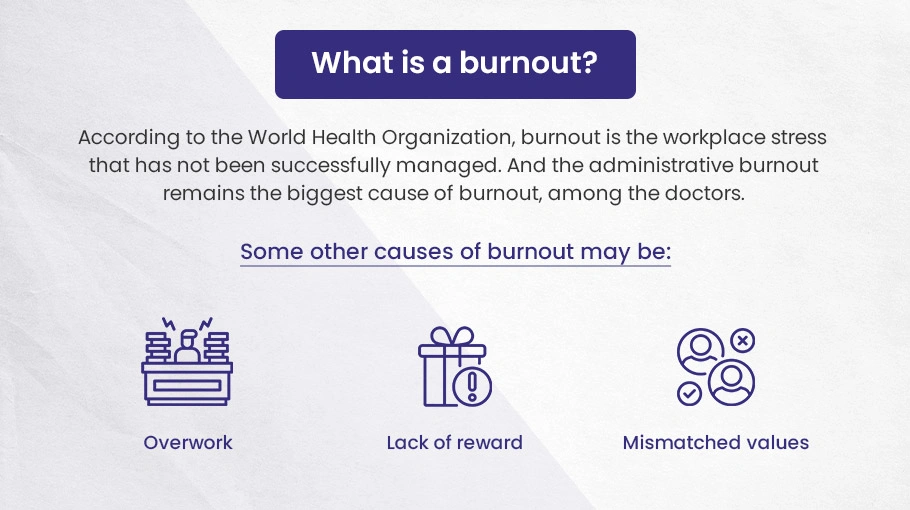
➜ Moral distress
Witnessing situations where you can’t provide the care you believe a patient deserves can be disheartening. The attempt to uphold ethics is a struggle in itself that can sometimes lead providers feeling powerless to take an appropriate action when treating a patient.
What to do when you start hating your patients?
It’s important to identify, acknowledge, and reflect on the above mentioned feelings. Ignoring them can lead to uncertainty, confusion, detachment, depression, and ultimately, a negative impact on your patients and your own well-being.
The good news?
You are not alone and these feelings don’t have to be your reality. Here are some actionable steps to reignite the passion that brought you to medicine in the first place:
1). Reconnect with your “why”
Remember why you went into medicine.
Was it the desire to alleviate suffering? The fascination with the human body? Revisit your initial motivations.
You can jot down a few moments that strengthened your desire to become a doctor. Was it a childhood experience, a mentor’s guidance, or or witnessing a medical breakthrough?
Post these reminders somewhere you can see them daily.
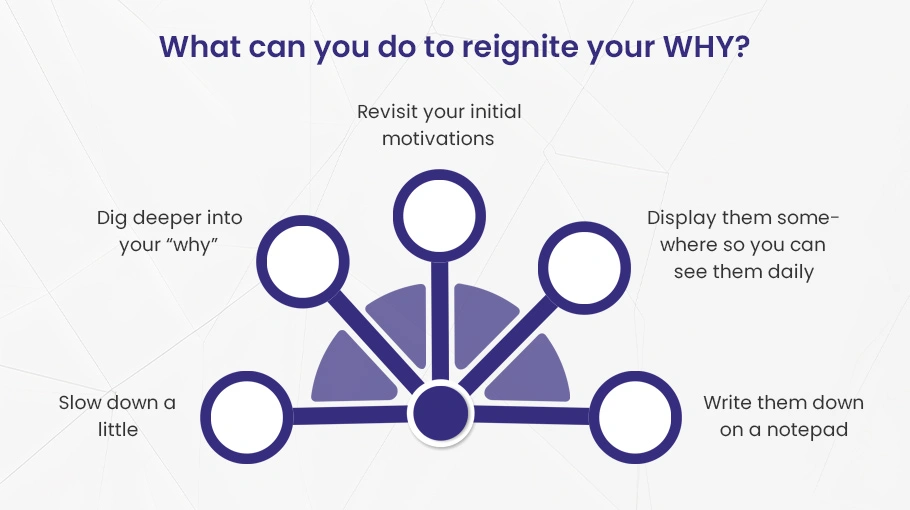
2). Set boundaries. It’s OK to say NO
Don’t be afraid to say no to unreasonable demands or take some time for yourself. A well-rested human is a better human.
Figure out your limits. Setting boundaries can raise your productivity, increase self-awareness, develop work ethics, and reduce stress and burnout.
Be honest with yourself and communicate these boundaries clearly with colleagues and patients. Explain that it allows you to be more present and provide better care when you are at work.
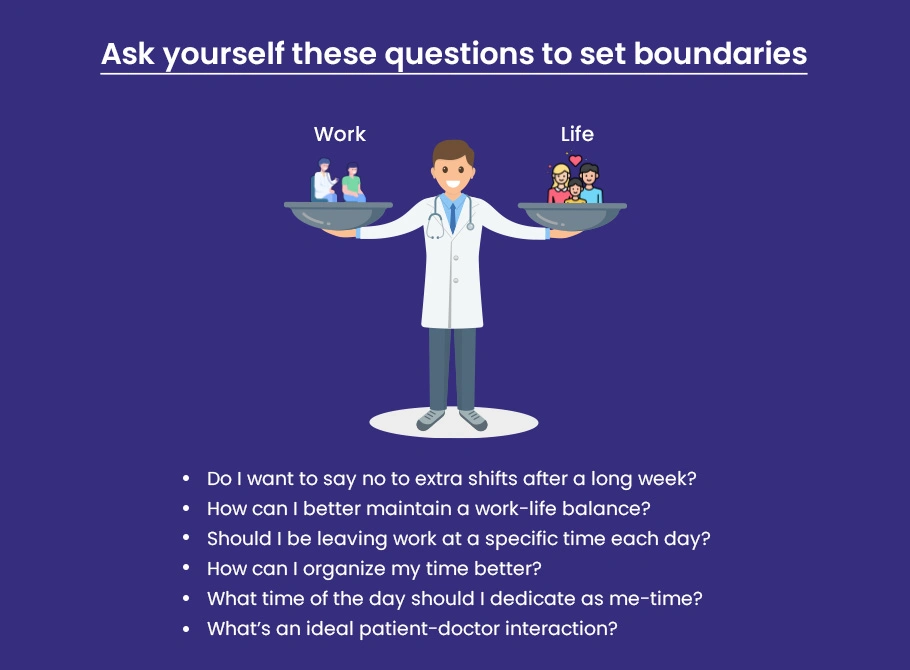
3). Focus on the wins, big and small
Even on difficult days, take a moment to savor the positive outcomes. Before leaving work, take a few minutes to reflect on the day’s successes.
Go through the day with a brief reflection. Did you help someone manage their pain actively? Did you educate a patient about preventative care? Celebrate these victories. no matter how small.
Consider keeping a gratitude journal specifically focused on patient interactions. This can help reframe negative experiences and highlight the positive impact you have created in your surroundings.
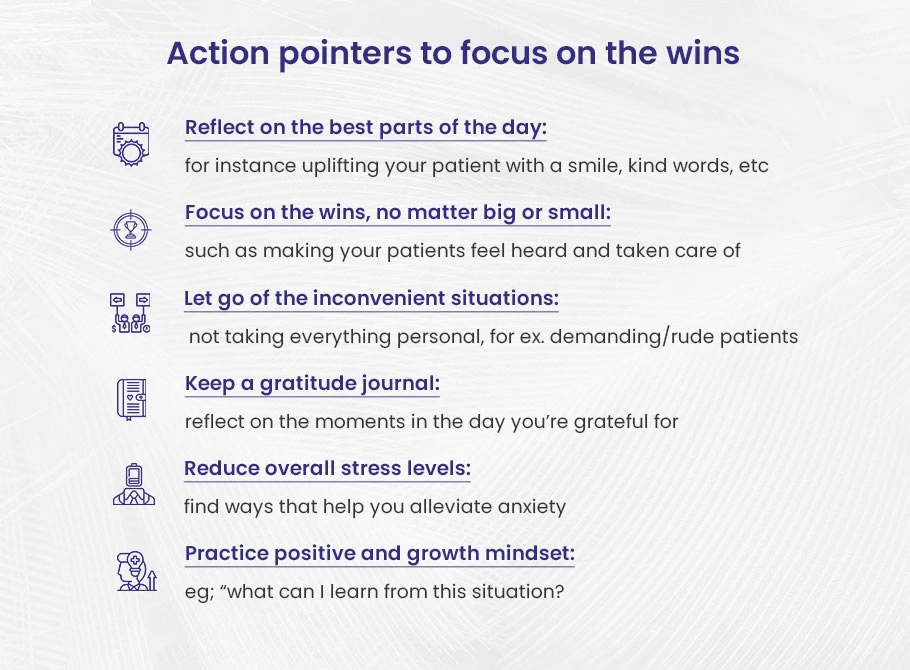
4). Find and build your support system
Lean on your tribe, talk to your friends and colleagues, mentors, or therapists. Sharing your struggles and experiences can be cathartic and lead to helpful but practical advice.
Consider joining a support group for healthcare professionals that can help you significantly with practical advice.
Look for online or in-person support groups specifically for healthcare professionals. Sharing experiences and connecting with friends, family and peers will never disappoint you.
Here’s how you can build your support system
- Seek a trusted colleague and discuss the matter at hand
- Talk to a friend, mentor, or therapist
- Join support groups for some practical suggestions
5). Practice self-care
As the saying goes you can’t pour from an empty cup, which is true to keep your sanity for personal as well as in professional life.
Prioritize your physical and mental health. Schedule regular exercise even if it’s just a short walk during your lunch break, eat nourishing meals that fuel your body, and prioritize sleep.
Mental well-being takes you a long way. Explore mindfulness practices like meditation or deep breathing exercises. Prioritize adequate sleep for optimal mental clarity and emotional resilience.
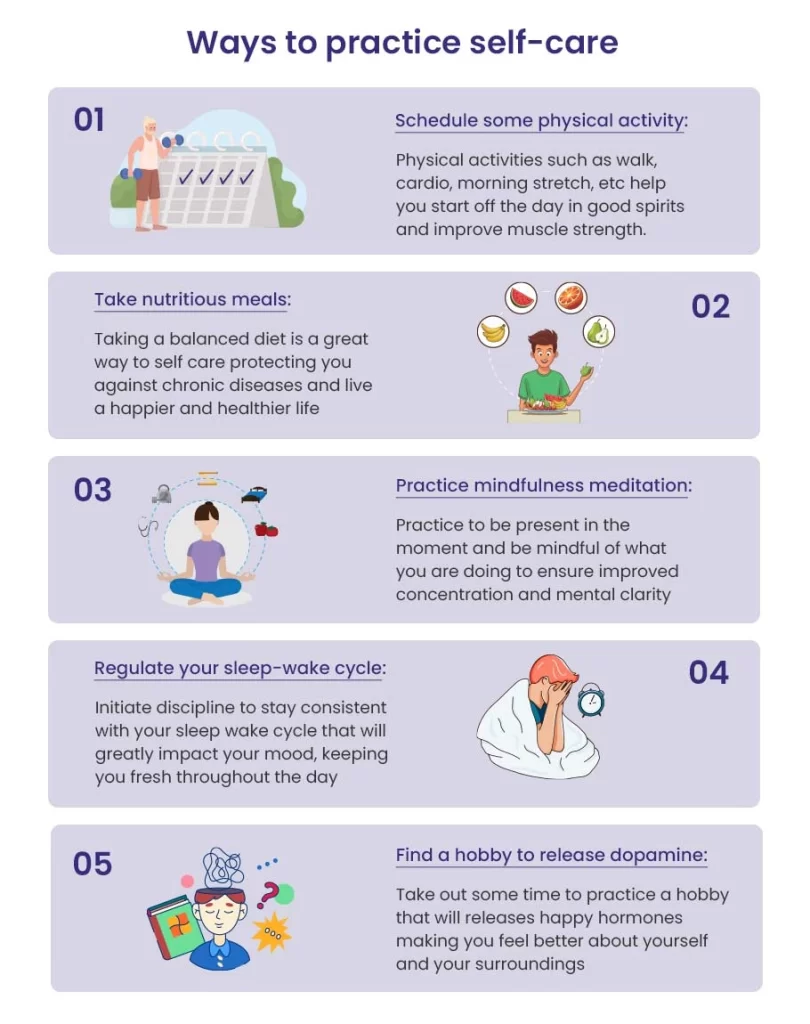
6). Seek professional help if needed
Don’t hesitate to seek therapy if you’re struggling to cope on your own. A therapist can provide tried and tested tools for managing stress, negativity, and compassion fatigue.
Studies have shown that professional support helps you seek quicker guidance and identify why you feel the way you feel. It helps you in mind shifts and changing behaviors that hold you back in certain situations.
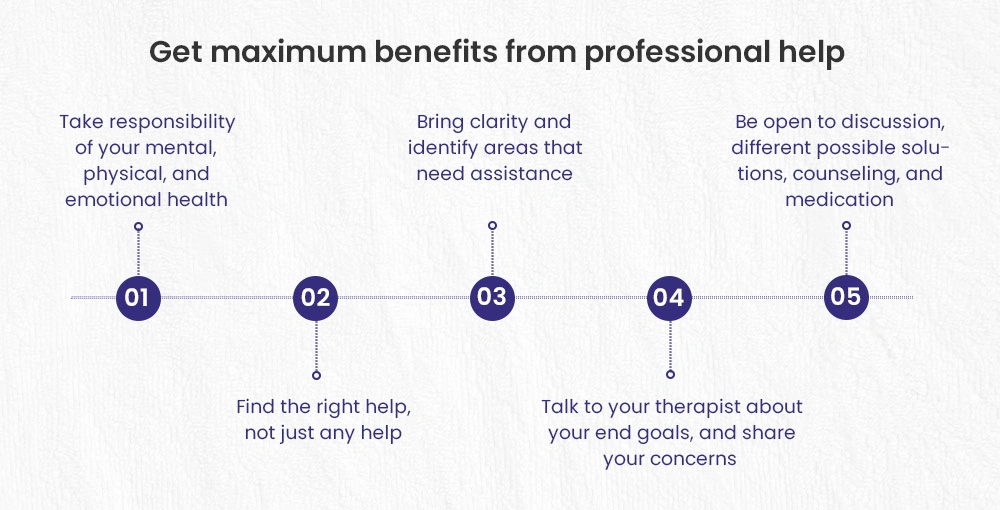
Remember, talking about your personal issues is hard but make sure to be honest and keep an open mind to receive complete help.
7). Advocate for change
Doctors can sometimes feel weighed down by administrative tasks. If systemic issues like excessive paperwork are contributing to burnout, consider collaborating with colleagues to advocate for improvements within your practice or healthcare system.
Be part of the solution and think about the aspects of the healthcare system that contribute to the feelings of exhaustion towards your patients.
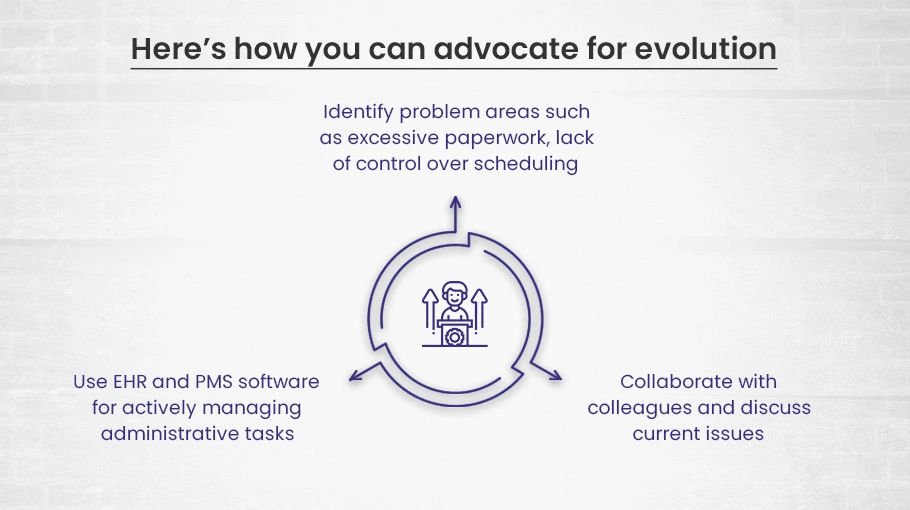
Between appointment scheduling, insurance verification, and charting, valuable time can be stolen away from what doctors are required to do – providing quality patient care. On the contrary, they start feeling frustrated and hatred towards their patients.
This is where Practice Management Software (PMS) and Electronic Health Records (EHR) come in – powerful tools that can significantly lighten the administrative load.
How does a PMS help reduce administrative burden?
✔️ Online appointment scheduling allows patients to book appointments at their convenience, reducing phone calls and back-and-forth communication with the provider.
✔️ You can manage patient information and data records via PMS where patient information is stored that can be accessed from anywhere at any time.
✔️ Secure messaging allows doctors to communicate with patients about appointment reminders, lab results, or prescription refills.
✔️ Generate reports on practice performance, patient demographics, and billing trends. This data can be used to identify areas for improvement and optimize workflows.
How does an EHR help reduce administrative burden?
✔️ Integration with calendars ensures all appointments are reflected in one place, minimizing scheduling conflicts and making these tasks time-efficient.
✔️ Doctors can verify insurance information automatically, reducing the risk of denied claims and streamlining billing processes.
✔️ Integrating EHR with PMS enables Electronic charting that allows for quick and efficient note-taking during appointments.
✔️ Patient portals empower patients to view their health information, schedule appointments, and communicate with doctors directly making the process smoother for all parties involved.
8). Remember the human connection
Take a moment to connect with your patients on a personal level. Hearing their stories and understanding their anxieties can help you rekindle the empathy that drew you to medicine in the first place.
Focus on shared decision-making and patient education. When patients understand their conditions and treatment options, they’ve more receptive attitude towards the treatment options.
Rekindle human connection with your patients by:
- Actively listening
- Empowering your patients by making them feel heard, seen, and comfortable
- Putting yourself in their shoes and show empathy
Lastly, being a doctor is a calling but it’s not always sunshine and roses. However, by identifying your challenges, taking steps to overcome them, and focusing on self-care, you can reclaim the passion that led you to this path and continue to provide the compassionate care your patients deserve without feeling the emotions of hatred.
So, be kind to yourself, seek support, and remember the incredible impact you have on people’s lives.
Conclusion
➜ Reasons why a doctor might start hating his patients?
Compassion fatigue, feeling disrespected and underappreciated, systemic burnout, and moral distress can make doctors resent their patients.
➜ What to do when you start hating your patients?
Reconnect with your purpose for becoming a doctor. Set clear boundaries to avoid burnout. Celebrate small wins. Build a support system. Practice self-care. Seek counseling if needed. Push for change. Remember patients are human too.





